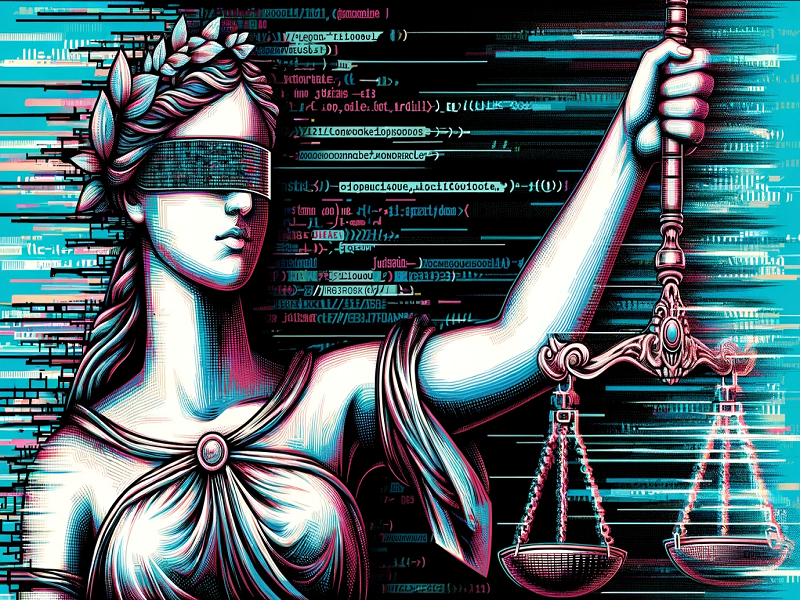India’s judiciary, revered as the guardian of justice, faces criticism for “God’s Syndrome”—a mindset of infallibility and overreach. This phenomenon threatens the balance of power, with judges perceived as operating beyond accountability. Exploring the roots and ramifications of this issue is crucial for preserving democratic integrity.
In the intricate tapestry of Indian democracy, the judiciary occupies a pivotal role, acting as a guardian of the Constitution and a protector of individual rights. However, this esteemed institution is not immune to scrutiny and criticism. One such criticism that has gained traction in recent years is the phenomenon colloquially referred to as the “God’s Syndrome” of judges. This term encapsulates the perceived arrogance, unaccountability, and overreach of certain members of the judiciary, likening their conduct to that of deities who operate above the norms and regulations that govern ordinary mortals.
Understanding the Concept
“God’s Syndrome” in the judicial context refers to a mindset where judges, due to their powerful positions and the reverence accorded to them, begin to see themselves as infallible and omnipotent. This phenomenon is not unique to India but is often discussed in the context of the country’s judiciary due to its far-reaching implications on the rule of law, judicial accountability, and democratic governance.
Historical Context
The Indian judiciary has a storied history of both commendable judicial activism and instances of perceived overreach. Landmark judgments like Kesavananda Bharati v. State of Kerala, which established the basic structure doctrine, and Vishaka v. State of Rajasthan, which laid down guidelines for preventing sexual harassment at the workplace, are celebrated examples of judicial intervention in the public interest. However, the same judiciary has faced criticism for instances where it is perceived to have encroached upon the domains of the executive and the legislature, thereby disturbing the delicate balance of power enshrined in the Constitution.
Manifestations of God’s Syndrome
- Judicial Overreach: One of the most prominent manifestations of God’s Syndrome is judicial overreach, where courts make decisions on matters traditionally within the purview of the executive or legislative branches. Critics argue that such actions undermine the principle of separation of powers and lead to a judiciary that is seen as omnipotent.
- Unaccountability: Judges in India enjoy significant protection from scrutiny. The process of impeachment is cumbersome and rarely invoked, leading to a perception of unaccountability. This insulation can sometimes result in judges believing that they are beyond reproach.
- Disregard for Procedural Norms: Another aspect of God’s Syndrome is the disregard for established procedural norms. In some cases, judges have been criticized for bypassing standard legal procedures or for delivering verdicts based on personal beliefs rather than established legal principles.
- Arrogance and Public Statements: Judges in India are often seen making public statements on issues that are politically sensitive or beyond their judicial mandate. Such actions contribute to the perception of arrogance and a belief in their own omnipotence.
High-Profile Instances
Several high-profile instances have brought the issue of God’s Syndrome to the forefront. The 2019 Ayodhya verdict, which resolved a decades-long dispute over a religious site, was seen by some as an example of judicial overreach and appeasement. Similarly, the Supreme Court’s handling of the National Register of Citizens (NRC) in Assam and its intervention in environmental issues, sometimes without a solid scientific basis, have been criticized.
Impact on Democracy
The implications of God’s Syndrome are profound and far-reaching. When judges act beyond their mandate, it can lead to an erosion of trust in the judiciary. The judiciary is supposed to be an impartial arbiter of justice, and any perception of bias or overreach can undermine its credibility.
Moreover, judicial overreach can destabilize the balance of power among the three branches of government. The framers of the Indian Constitution envisaged a system of checks and balances, where each branch would operate within its defined limits. When the judiciary steps into the domains of the executive or legislature, it disrupts this balance, potentially leading to governance challenges.
Judicial Accountability
Addressing the issue of God’s Syndrome requires a multifaceted approach centered on enhancing judicial accountability while preserving judicial independence. Some proposed measures include:
- Strengthening the Judicial Appointments Process: The process of appointing judges should be transparent and merit-based. The National Judicial Appointments Commission (NJAC), though struck down by the Supreme Court, was an attempt to bring more accountability and transparency to judicial appointments.
- Implementing a Judicial Performance Evaluation System: Regular evaluation of judges based on their performance, including the quality of their judgments and adherence to procedural norms, can help maintain high standards of judicial conduct.
- Creating a Judicial Complaints Authority: An independent body to address complaints against judges can provide a mechanism for accountability without compromising judicial independence.
- Promoting a Culture of Judicial Humility: Judicial training programs should emphasize the importance of humility, adherence to procedural norms, and respect for the separation of powers.
- Public Disclosure and Transparency: Greater transparency in the functioning of the judiciary, including the publication of judgments and the rationale behind them, can help demystify the judicial process and make judges more accountable to the public.
The phenomenon of God’s Syndrome among judges in India poses a significant challenge to the principles of democracy and the rule of law. While the judiciary has played a crucial role in upholding constitutional values and protecting individual rights, it must also operate within the confines of its mandate. Enhancing judicial accountability, while preserving judicial independence, is essential to maintaining the credibility and integrity of this vital institution.
Addressing God’s Syndrome requires a concerted effort from all stakeholders, including the judiciary itself, the executive, the legislature, and civil society. Only through such a collective endeavor can the judiciary continue to function as a true guardian of justice and a pillar of democracy in India. #hydkhabar

